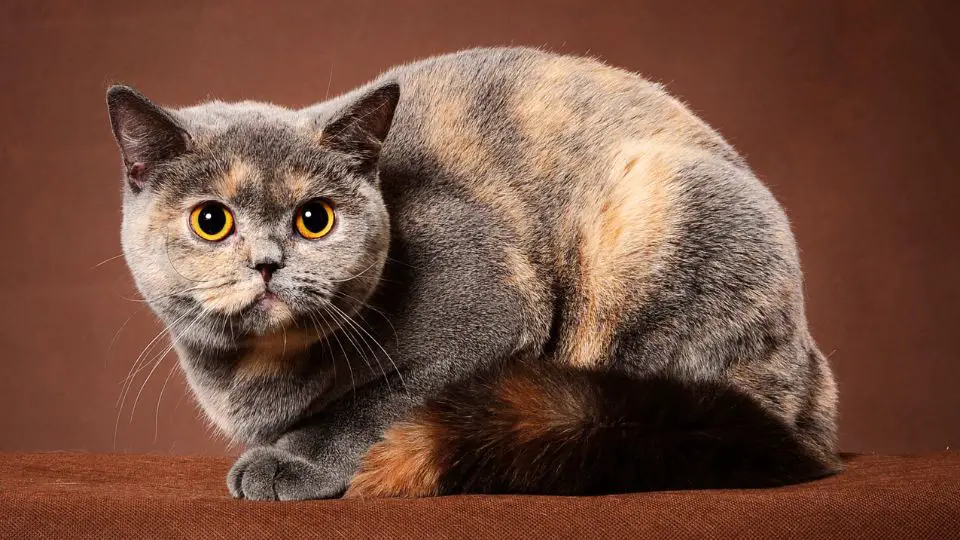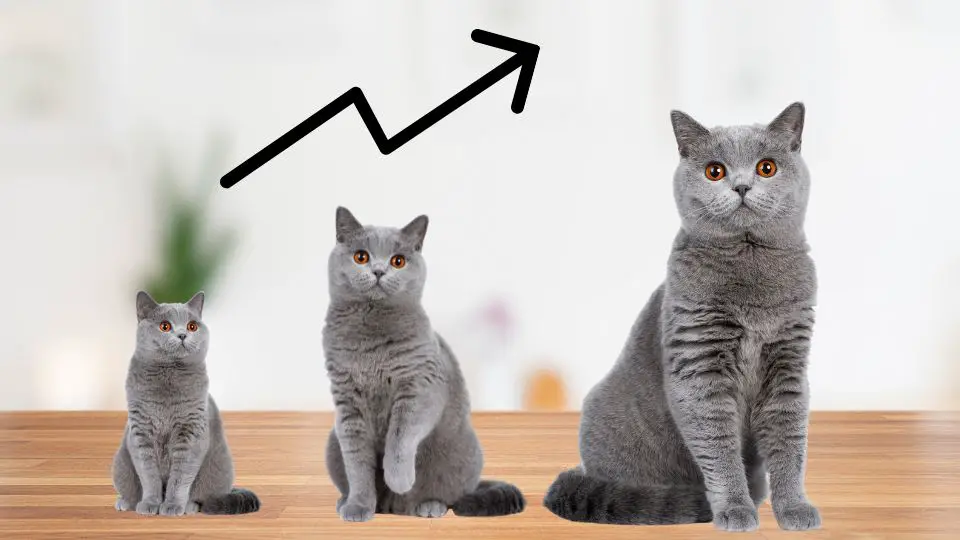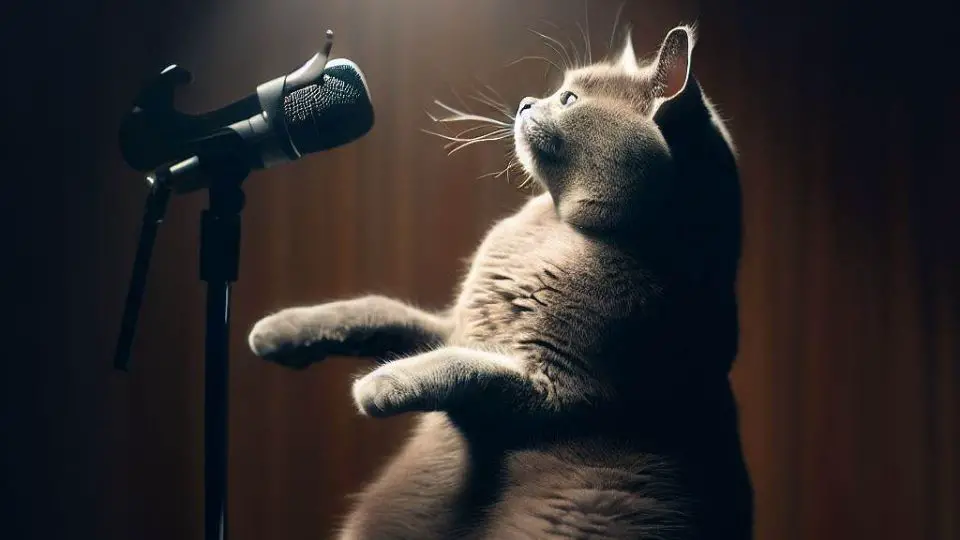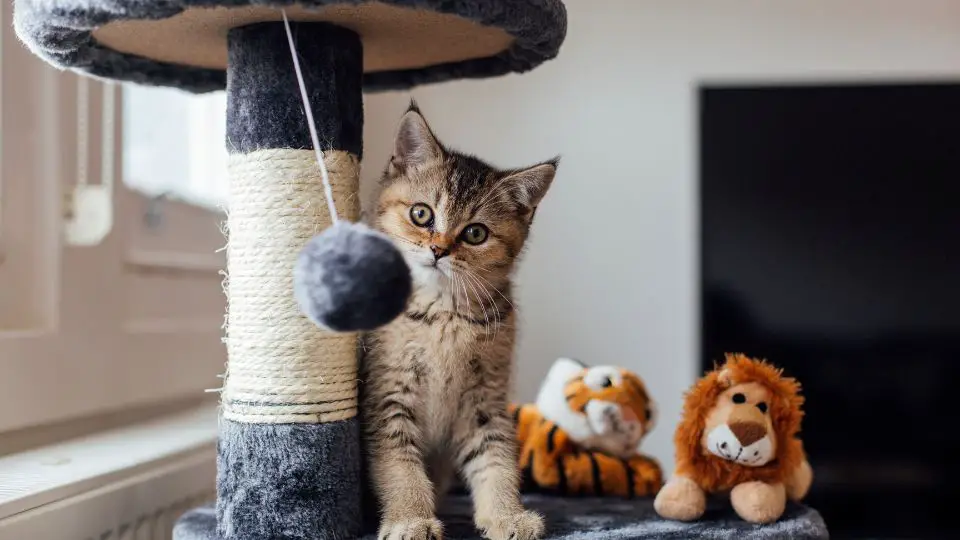Neutering is an important aspect of responsible pet ownership, and determining the appropriate age for neutering British Shorthair cats is a common concern among cat owners.
Neutering offers several health benefits and helps prevent unwanted litters, but finding the optimal age for the procedure requires careful consideration.
In this article, we will explore the factors to consider when determining the best age to neuter British Shorthair cats, ensuring their well-being and contributing to their overall health and happiness.
Ideal age for neutering British Shorthair cats
Veterinary professionals generally recommend neutering British Shorthair cats between the ages of 4 to 6 months. This age range is considered optimal for several reasons.
First, it allows the cat to reach a suitable level of physical maturity without the risk of unwanted pregnancies. Second, early neutering has been shown to offer various health benefits, such as reducing the risk of certain reproductive-related diseases and behaviors.
While the general age range for neutering British Shorthair cats is 4 to 6 months, several factors should be taken into account to determine the most appropriate age for an individual cat:
- Health and Development: The overall health and development of the cat should be evaluated. Cats should be in good health and meet the minimum weight requirement for safe anesthesia and surgery.
- Growth Rate: The growth rate of British Shorthair cats can vary. Some cats may reach physical maturity earlier than others. Consultation with a veterinarian can help assess the cat’s growth rate and determine the appropriate timing for neutering.
- Behavioral Considerations: Neutering can help reduce certain undesirable behaviors, such as aggression, urine spraying, and roaming. Discussing any behavioral concerns with a veterinarian can help determine the best age for neutering based on the cat’s behavior patterns.
- Individual Circumstances: Individual circumstances, such as the cat’s living environment and risk of unwanted pregnancies, should also be considered. If there are intact male or female cats in the same household, early neutering may be recommended to prevent unplanned litters.
Note that every cat is unique, and the optimal age for neutering may vary. Consulting with a veterinarian is crucial to assess the cat’s specific needs and determine the best timing for the procedure.
Neutering male British Shorthair cats
Male British Shorthair cats are typically neutered between the ages of 4 to 6 months. At this age, they have generally reached a suitable level of physical maturity for the surgery, and it helps prevent the development of reproductive-related health issues. Neutering at a young age also reduces the risk of certain behavioral problems, such as urine spraying and aggression.
The surgical procedure for neutering male cats, known as castration or neutering, involves the removal of the testes through a small incision in the scrotum. The procedure is performed under general anesthesia by a qualified veterinarian.
After the surgery, the cat will need a period of recovery to heal. Follow the post-operative care instructions provided by the veterinarian, which may include pain management, activity restrictions, and wound monitoring.
Potential Health and Behavioral Benefits
Neutering male British Shorthair cats offers several health and behavioral benefits:
- Prevention of Testicular Cancer: Neutering eliminates the risk of testicular cancer, as the testes are removed during the procedure.
- Reduction of Urine Spraying: Neutering can help reduce urine spraying, a behavior commonly associated with intact male cats marking their territory.
- Decreased Aggression: Neutering can reduce aggressive behaviors in male cats, making them more docile and less likely to engage in fights with other cats.
- Avoidance of Roaming: Neutering helps prevent the urge to roam in search of mating opportunities, reducing the risk of injuries, accidents, or getting lost.
- Prevention of Unwanted Pregnancies: Neutering eliminates the possibility of contributing to unplanned litters and helps control the cat population.
Note that individual cats may have different responses to neutering, and results may vary. Consulting with a veterinarian is essential to discuss any specific concerns and determine the best course of action for your male British Shorthair cat.
Neutering female British Shorthair cats
Female British Shorthair cats are typically neutered between the ages of 4 to 6 months. This age range is considered ideal because it allows the cat to reach a suitable level of physical maturity for the surgery while minimizing the risk of going into heat or becoming pregnant. Neutering at a young age also eliminates the risk of certain reproductive-related health issues, such as uterine infections and mammary tumors.
The surgical procedure for neutering female cats, known as spaying, involves the removal of the ovaries and uterus through a small incision in the abdomen. The procedure is performed under general anesthesia by a qualified veterinarian.
After the surgery, the cat will need a period of recovery to heal. Follow the post-operative care instructions provided by the veterinarian, which may include pain management, activity restrictions, and wound monitoring.
Prevention of Unwanted Pregnancies and Health Benefits
Neutering female British Shorthair cats offers several important benefits:
- Prevention of Unwanted Pregnancies: Neutering eliminates the risk of unwanted pregnancies and helps control the cat population. This is particularly important for preventing the birth of kittens that may contribute to the increasing number of homeless cats.
- Elimination of Heat Cycles: Neutered female cats do not experience heat cycles, which can be distressing for both the cat and the owner. Heat cycles can lead to behavioral changes, increased vocalization, and attraction of male cats.
- Prevention of Reproductive Health Issues: Neutering eliminates the risk of uterine infections (pyometra) and reduces the risk of mammary tumors, including malignant ones. These health issues can be life-threatening and require immediate medical attention.
By choosing to neuter their female British Shorthair cats, pet owners can contribute to their long-term health and well-being. Neutering not only prevents unwanted pregnancies but also eliminates the risks associated with reproductive health issues. It helps control the cat population, eliminates the stress of heat cycles, and reduces the likelihood of serious health problems.
Consider individual factors
British Shorthair cats are a distinct breed with their own unique characteristics. When considering the age for neutering, take into account any breed-specific considerations. While there isn’t specific research indicating breed-specific differences in the ideal age for neutering, it is advisable to consult with a veterinarian who has experience with British Shorthairs. They can provide insights into any potential breed-specific factors that may influence the timing of the procedure.
Health and Development of the Cat
The overall health and development of the cat play a significant role in determining the appropriate age for neutering. Cats should be in good health and free from any underlying medical conditions that could affect their ability to undergo surgery. It is essential to schedule a thorough veterinary examination to assess the cat’s overall health and discuss any concerns related to the timing of the procedure.
Additionally, the cat’s physical development should be considered. Neutering too early, before the cat has fully developed, can impact their growth and maturation. On the other hand, delaying neutering for too long may increase the risk of certain health issues, such as mammary tumors in female cats. Striking the right balance is crucial, and consultation with a veterinarian can help determine the optimal age for your British Shorthair cat.
Consult with a Veterinarian for Personalized Recommendations
When it comes to deciding the ideal age for neutering, it is always best to consult with a veterinarian who has a comprehensive understanding of your British Shorthair cat’s individual needs.
They can provide personalized recommendations based on the cat’s health, development, and breed-specific considerations. A veterinarian will consider various factors, such as the cat’s age, overall health, and lifestyle, to determine the most appropriate time for the procedure.
FAQ
What is the healthiest age to neuter a male cat?
The healthiest age to neuter a male cat is typically between 4 and 6 months old. Neutering at this age is generally recommended by veterinarians as it helps prevent unwanted behaviors and reduces the risk of certain health issues.
Is 2 years too old to neuter a cat?
Neutering a cat at 2 years old is not too old and can still be beneficial. While it is generally recommended to neuter cats at a younger age, neutering at 2 years old can still help prevent certain health problems and eliminate unwanted behaviors.
Is 8 months too late to neuter a cat?
No, 8 months is not too late to neuter a cat. Neutering at 8 months old is still considered within an appropriate age range. It is always best to consult with a veterinarian to determine the best timing for your specific cat.
Can a male cat be neutered too early?
Neutering a male cat too early, before they have fully developed, can have potential health risks. It is generally recommended to wait until the cat is at least 8 weeks old or weighs around 2 pounds before scheduling the procedure.
Can a 5 month old male kitten be neutered?
Yes, a 5-month-old male kitten can be safely neutered. This age is within the typical age range for neutering and is recommended by many veterinarians. Neutering at this age helps prevent unwanted behaviors and reduces the risk of certain health issues associated with intact male cats.
Conclusion
Determining the ideal age for neutering British Shorthair cats involves weighing various factors to make an informed decision. While there is a typical age range for neutering, it’s important to consider individual factors such as the cat’s health, development, and breed-specific considerations.
Consulting with a veterinarian who has experience with British Shorthair cats can provide valuable insights and personalized recommendations. By taking these factors into account, cat owners can ensure the well-being and long-term health of their beloved British Shorthair companions.
Neutering at the appropriate age not only contributes to population control and prevents unwanted pregnancies but also offers several health benefits for the cat. Making a responsible decision regarding neutering age is an important step in providing the best care for British Shorthair cats and promoting their overall well-being







